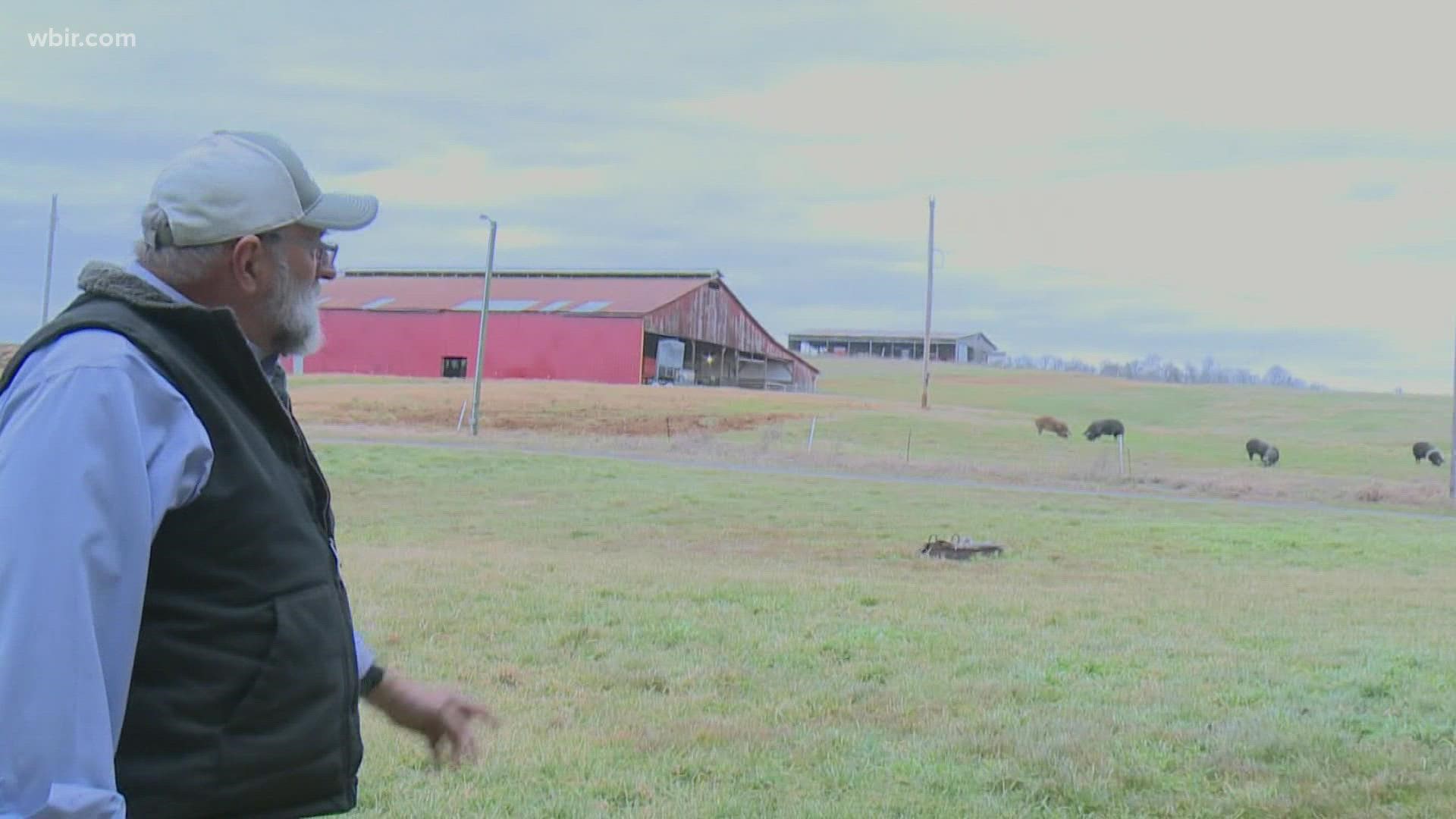NEW MARKET, Tenn. — The cost of living continues to grow, with record inflation impacting most products. Those cost increases hit especially deep for the ones growing produce, crops and raising livestock.
A study from the University of Tennessee shows over the last 100 years, Tennessee lost around six family farms per day.
Alex Miller is a seventh-generation farmer who said he's on somewhat of a one-man crusade to change that.
Farmers have played a tremendous role in America throughout history, supplying food for millions across the country.
Miller's grandfather started farming the land now known as Lick Skillet Farm more than 100 years ago. It's around 1,000 acres large and is in New Market, raising a number of different livestock and primarily producing cattle beef.
"My grandfather farmed this farm. Started farming it in 1919," Miller said.
Since then, revenues are down and costs are up. The price of beef is much higher, but Miller said those profits are not being shared with farmers. According to Miller's study, consumers pay $4 more a pound for steaks today than they did 25 years ago. Farmers, however, got around 50 cents more per pound for the cow that produced those steaks.
In 1950, when his dad was running the farm, he said he could expect nearly 50 cents on the dollar in return on food sold in the United States. Years later, 30 cents on the dollar. In 2019 he said farmers could expect less than 11 cents per dollar spent on food. Fast forward to 2022, the return continues to drop.
"Out of every dollar that you spend at the grocery store, only 8 cents makes it back to the farmer," he said.
That's why more local farmers are getting out of the industry altogether, he said.
"We've gone down from 280,000 family farms in Tennessee to 60,000. That works out to six family farms a day that are disappearing from Tennessee," Miller said.
Between 2001 and 2016, he said, Tennessee also lost 659,000 acres of farmland.
"It really is devastating to the rural communities but also has an impact on food security," Miller said. "If we're not producing and selling our animals locally that means money is being sent outside of our state, outside of our community."
He said that money could be used to boost the local economy, instead. Roots in New Market run deep for Miller. This year, that means digging deeper into the farm budget.
"Local farms are important not just because of the families that are involved in those local farms but because of what they bring to the local community, the security they bring to the food supply chain," Miller said. "Under that pressure, under that global supply chain, we can't survive. Family farms can't survive. The only way family farms can survive is if the local communities shop local."
It's easy to shop locally. East Tennessee cities and towns routinely host farmer's markets where local growers can show off their wares, including a popular one in downtown Knoxville.
"Farmers who would love nothing more than for you to be a customer of theirs," Miller said.
Consumers can also buy food straight from the supplier by reaching out to their preferred farmer, or by speaking with farmers they meet at community markets about routinely buying groceries.

